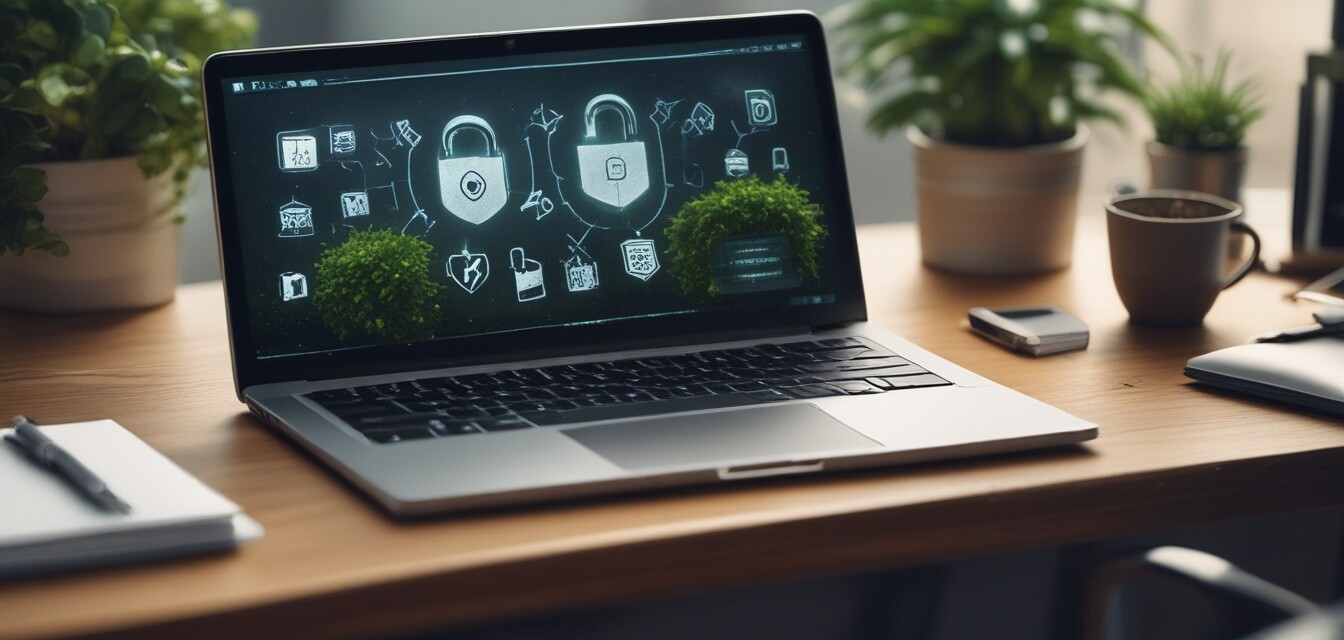
Ensuring Your Laptop's Privacy and Security
In today’s digital age, safeguarding your laptop’s privacy and security is more crucial than ever. Each of us stores sensitive personal information on our devices, and ensuring its protection can prevent identity theft and unauthorized access. Below, we'll explore practical tips that enhance your laptop's security settings and protocols to keep your personal data safe.
Key Takeaways
- Implement strong passwords and multi-factor authentication.
- Regularly update your software to protect against vulnerabilities.
- Utilize encryption to safeguard sensitive files.
- Be cautious with public Wi-Fi networks and use VPNs when necessary.
- Regularly back up your data to prevent loss in case of breaches.
Enhancing Security Settings
Your laptop's built-in security features are vital in protecting your data. Below are some essential steps you can take to fortify these settings:
| Security Feature | How to Enhance |
|---|---|
| Password Protection | Use a complex password with a mix of letters, numbers, and symbols. Consider using a password manager to generate and store passwords. |
| Firewall | Ensure your firewall is turned on. This creates a barrier between your laptop and potential threats from the internet. |
| Antivirus Software | Install reputable antivirus software and keep it updated to combat malware and other threats. |
| Automatic Updates | Enable automatic updates for your operating system and software to close security gaps as they are discovered. |
Practicing Safe Online Behavior
Even the most robust security settings can be undermined by poor online behavior. Here are some practices to adopt:
- Avoid suspicious emails: Don’t click on links or download attachments from unknown sources.
- Use secure connections: Always check for HTTPS websites, especially when entering personal information.
- Be cautious with public Wi-Fi: If you must use public Wi-Fi, connect through a trusted VPN.
- Limit social media sharing: Be mindful of the personal information you share online.
Utilizing Encryption
Encryption is a powerful tool to protect sensitive data on your laptop. Here's how you can start using it:
- Full disk encryption: Activate this feature to encrypt everything on your hard drive, so unauthorized users cannot access your data.
- File encryption: For individual files or folders, use encryption software to ensure that only authorized users can access them.
- Encrypted backups: Always encrypt backups to secure your data, especially if stored offsite or in the cloud.
Regular Data Backups
Backing up your data is an essential practice to protect your information from potential breaches. Here’s how to incorporate regular backups:
- Choose a reliable backup method, such as an external hard drive or a cloud solution.
- Set a routine, such as weekly or monthly backups, to ensure your data is consistently up-to-date.
- Test your backups to ensure they are complete and functional.
Conclusion
Taking the necessary steps to ensure your laptop's privacy and security is essential in today’s digital world. By enhancing security settings, practicing safe online behavior, utilizing encryption, and regularly backing up your data, you can significantly reduce the risk of data loss and identity theft. For additional information on optimizing your device's performance and security, explore our Expert Tips category for more helpful insights.
Pros
- Improved protection against cyber threats.
- Enhanced personal data security.
- Peace of mind knowing your information is safeguarded.
Cons
- May require time and effort to maintain security practices.
- Some security measures can slow down performance.